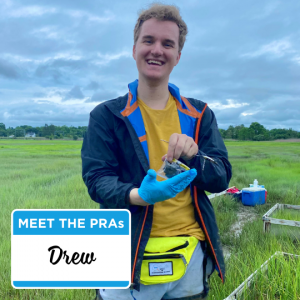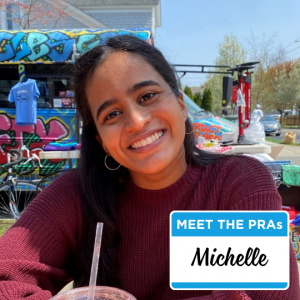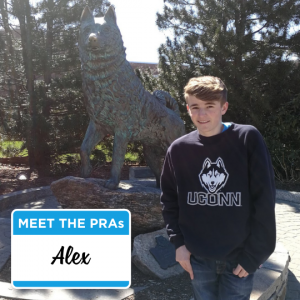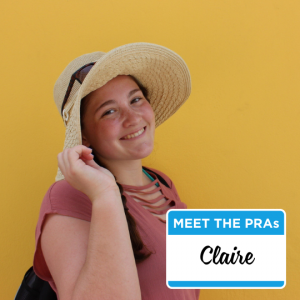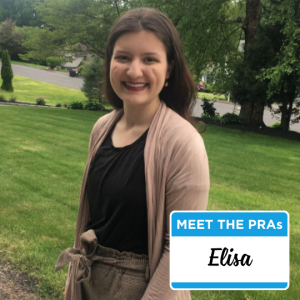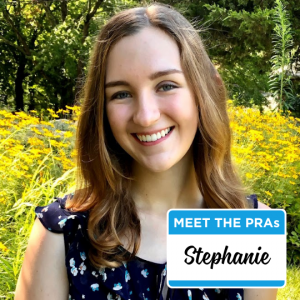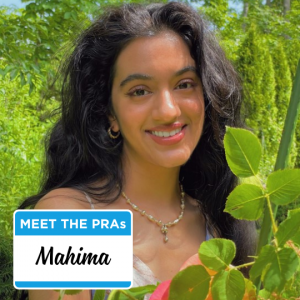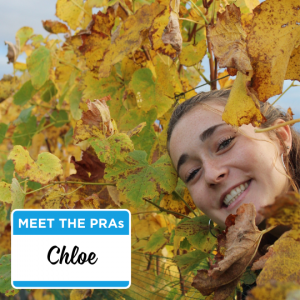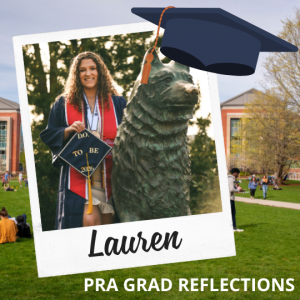 Lauren Rudin ’22
Lauren Rudin ’22
Major: Exercise Science; Minor: Biological Sciences
2021-22 OUR Peer Research Ambassador
My Journey:
I can’t say that four years ago I entered college with the intention of pursuing research. However, I can now say that my undergraduate and future careers have been shaped by my research experiences here at UConn.
When I first met my primary research mentor the summer before starting sophomore year, Dr. Molly Waring, PhD, I didn’t know how much her dedication towards her undergraduate students’ success would impact my professional life. Before entering her lab in the Department of Allied Health Sciences I had minimal research experience overall and none related to her field, but I had a strong interest in her passion to leverage social media to better the lives of pregnant and postpartum women and mothers. Continue reading

